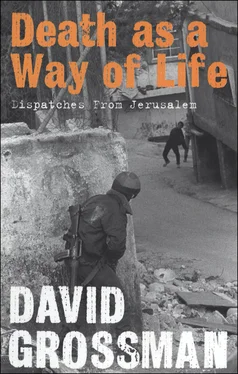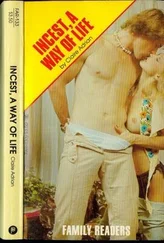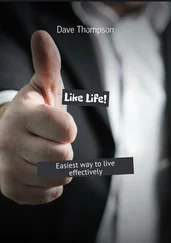David Grossman - Death as a Way of Life
Здесь есть возможность читать онлайн «David Grossman - Death as a Way of Life» весь текст электронной книги совершенно бесплатно (целиком полную версию без сокращений). В некоторых случаях можно слушать аудио, скачать через торрент в формате fb2 и присутствует краткое содержание. Год выпуска: 2013, Издательство: Bloomsbury Publishing, Жанр: Прочая документальная литература, на английском языке. Описание произведения, (предисловие) а так же отзывы посетителей доступны на портале библиотеки ЛибКат.
- Название:Death as a Way of Life
- Автор:
- Издательство:Bloomsbury Publishing
- Жанр:
- Год:2013
- ISBN:нет данных
- Рейтинг книги:5 / 5. Голосов: 1
-
Избранное:Добавить в избранное
- Отзывы:
-
Ваша оценка:
- 100
- 1
- 2
- 3
- 4
- 5
Death as a Way of Life: краткое содержание, описание и аннотация
Предлагаем к чтению аннотацию, описание, краткое содержание или предисловие (зависит от того, что написал сам автор книги «Death as a Way of Life»). Если вы не нашли необходимую информацию о книге — напишите в комментариях, мы постараемся отыскать её.
Death as a Way of Life — читать онлайн бесплатно полную книгу (весь текст) целиком
Ниже представлен текст книги, разбитый по страницам. Система сохранения места последней прочитанной страницы, позволяет с удобством читать онлайн бесплатно книгу «Death as a Way of Life», без необходимости каждый раз заново искать на чём Вы остановились. Поставьте закладку, и сможете в любой момент перейти на страницу, на которой закончили чтение.
Интервал:
Закладка:
As if we no longer have any other way.
In the meantime, for the last year and a half, Barak and Arafat have not stopped talking about the need to make peace, for the sake of the children. But they are apparently speaking of some abstract peace, of figurative children.
A twelve-year-old boy now lies between them, a boy with a name and a face, a face contorted with fear. A very tangible dead boy.
Were Barak and Arafat braver, really brave, this boy might still be alive. Now, even if they reach an agreement in the end, we will carry Muhammad al-Durrah’s face in our minds like a curse.
Who knows how many more innocent people will die in the days to come, until the two sides understand that the look that was in the eyes of that boy before he died will be the look we all have, if we continue to sit passively, easy prey for violence.
Letter to a Palestinian Friend
October 2000
The second Intifada broke out after the failure of the negotiations between Israel and the Palestinians at Camp David. It was instigated by a visit of opposition leader Ariel Sharon to the Temple Mount (al-Haram al-Sharif) in the old city of Jerusalem, on September 28, 2000. Palestinians regarded the visit to the site, sacred to both Muslims and Jews, as a provocation, and the riots that erupted the next day resulted in many deaths. The wave of violence that spread throughout the West Bank and Gaza was met with overwhelming force by Israeli security forces.
On October 12, 2000, two Israeli reservists lost their way near Ramallah and were stopped by the Palestinian police. An angry Palestinian mob invaded the police station and brutally stabbed the Israelis to death, then mutilated their bodies. Shocking film footage of the murders convinced many Israelis that there was no hope of achieving a negotiated peace with the Palestinians.
Dear B.,
First, I hope you are well, and that no one in your family has been hurt in the events of these last weeks.
I was thinking how strange — and sad — it is that we have not spoken on the phone since the disturbances began. Up until then, after any event that took place during the peace process, joyous or violent, we always spoke, or even met (though the meetings were rarer). And now — absolute silence. Perhaps because we are both in shock, shock that paralyzes our ability to respond and our strength to continue to believe. Being in shock, we might both be thinking at this moment that we may have erred. Maybe we only imagined that we saw the incipience of hope in both our peoples. Maybe the whole concept of peace was the naive illusion of a few bleeding hearts that were weary of war and oblivious to the volcano of primal instincts and hatred churning under their feet.
Or perhaps we don’t dare call each other because somewhere, in your heart also, I’m sure, nestles the fear that the friend, the Other, has already despaired completely of conciliation. Maybe even he, moderate and judicious, has finally been inundated by the wave of hatred that has broken over all of us now.
But no. I don’t believe that this is what happened to you. We’ve known each other for eight years, talked about literature and politics, about life, about our children. It feels strange to me to address you in this way, publicly, and even now, at the opening of this letter, I feel a slight change in my normal manner of speaking to you. Over the years we have freed ourselves from the natural tendency of every Israeli and Palestinian who engage in dialogue to turn themselves into representatives of their people. But at this time, the new situation threatens to relegate us to that position, whether we like it or not.
You know, when I watch the television broadcasts, I always try to watch them through your eyes. I see a Palestinian throng storming an Israeli Army position and I try to single out an individual face, which might be the face of one of your children. I know that you don’t approve of this kind of demonstration, that it is foreign to your character, as one who opposes all forms of violence. But perhaps, under these new circumstances, it is hard to control a teenage boy who was but a toddler at the time of the first Intifada. Perhaps he has grown up on the proud, heroic stories of the teenage boys of that time and now longs to take part in his people’s resolute, violent struggle for independence. I gaze at the photographs, seeing how the hands are raised, holding stones; how the faces are contorted with hatred. I see the Israeli soldiers taking aim and shooting, and think of my own son, who will soon enlist in the army. Will his face and body also quickly adjust to those attitudes of war and hatred? I look, and suddenly all of them, our children and your children, have the same faces and the same gestures, and it is so clear the extent to which the long conflict has succeeded in claiming them for itself, all of them. All look to me like toy soldiers, lacking individual volition, marionettes manipulated by politicians and army commanders on both sides.
And I try to think of what you are experiencing, you with your sober, accommodating views, within a society that from the outside looks to me as if it is ablaze with a fire for revenge. You are within a nation that is now roaring at me, at least on the television screen, with a single voice, without nuances. But perhaps I am mistaken. Maybe you, and other common friends of ours, are making their voices heard. Maybe it’s the media — ours and yours and the world’s — that chooses to show only the harshest, most extreme scenes and stir up our feelings against each other. But even if the media is guilty, as we always claim in Israel, how is it possible that I have not heard a single note of true Palestinian condemnation of the horrible lynching of the two soldiers in Ramallah — and I mean an explicit condemnation, with no buts and with no “you must understand Palestinian anger.”
And are you over there, beyond the present wall of alienation, aware that among us you can still hear, even after all that has happened, voices that insist on questioning whether Israel indeed did every thing for peace, and what is the real nature of the peace that we imposed on the Palestinians, and whether we did not again fail by viewing reality through our spectacles of bottomless fear, our permanent blind spot? (But, after all, it is an eminently justifiable fear, a voice shouts within me, because in the face of all that we have seen, it is all so rational to fear!) I know that it is impossible to compare the limitations that you are subject to, to the freedom of expression that I have here, in Israel. The worst thing that can happen to me if I express an opinion that is far off the consensus is that someone will write a venomous article against me. But you might be physically harmed. But I so much want to hear, at this hour, in a private conversation, what you are thinking now.
If it’s at all possible to think now as the riots rage outside, and inside. All day — arguments. I drive my car and argue with myself. Friends testify that even in bed, with their spouses, they talk almost solely about politics. The human spirit cringes. I also realize that for every argument I make, I have an incontrovertible counterargument. The situation is so complex and unavoidable that suddenly even opinions I always opposed suddenly bear an ominous attraction. People accost me angrily in the street. Everything you believed in was just a dream, they say. You can’t make peace with the Palestinians. How can you believe Arafat, who has already signed four agreements in which he committed himself to refrain from the use of violence? How can you believe beasts like those who lynched the soldiers? What a horrible, criminal blunder it was to give the Palestinians weapons, with which they are now shooting and killing us.
Читать дальшеИнтервал:
Закладка:
Похожие книги на «Death as a Way of Life»
Представляем Вашему вниманию похожие книги на «Death as a Way of Life» списком для выбора. Мы отобрали схожую по названию и смыслу литературу в надежде предоставить читателям больше вариантов отыскать новые, интересные, ещё непрочитанные произведения.
Обсуждение, отзывы о книге «Death as a Way of Life» и просто собственные мнения читателей. Оставьте ваши комментарии, напишите, что Вы думаете о произведении, его смысле или главных героях. Укажите что конкретно понравилось, а что нет, и почему Вы так считаете.












